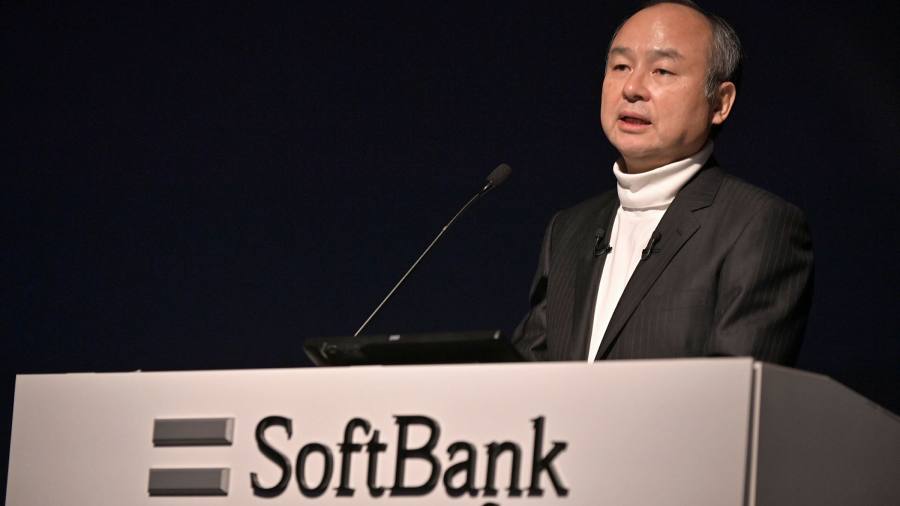[ad_1]
SoftBank’s thumpingly strong third quarter is no surprise. The tech-focused investment company has done what investment companies do and ridden the wave of a terrific bull run. Its Vision Funds almost doubled gains in the past quarter. Overall, SoftBank reported investment gains of Â¥3,799.5bn ($36bn) in nine months.Â
Don’t get carried away. SoftBank’s equity is still worth little more than its stake in China’s Alibaba. Its shares have lagged Scottish Mortgage, a far less showy investment trust run out of sedate Edinburgh that also bets on tech.
Gutted of almost any operational business, SoftBank reports like the fund it is: investment gains rather than operating profits. But self-awareness only goes so far.Â
Timing is a case in point. Founder Masayoshi Son, who likes to compare SoftBank to a goose laying golden eggs, is not averse to counting his goslings before they hatch. A deal to sell UK chip designer Arm to Nvidia, pencilled in September, is expected to drop $40bn in cash and shares into SoftBank’s coffers when it completes early next year. But antitrust watchdogs are circling in the UK and Europe. Rivals want the deal blocked. A spat in China threatens to torpedo everything. Switching to a Plan B — an alternative trade buyer or market spin-off — could lower the proceeds.
Its result does not depend upon high-profile deals. By far the bulk of SoftBank’s gains are unrealised. That is no cause for alarm yet. Shares in Uber, showing a return of 1.7 times to Vision Fund 1, are still climbing. But many of the latter’s holdings have yet to turn a profit and face regulatory hurdles.
A more nuanced issue is diversification. The Vision Funds hold stakes in 130-odd companies but some double up — a side effect of the cross-shareholdings held by Son and his peers. Thus, SoftBank’s 24.9 per cent stake in Alibaba, for example, gives it exposure to India’s Paytm while Uber provides exposure to China’s ride-hailing app Didi. Both Paytm and Didi are also held directly by the Vision Fund.
This latter-day keiretsu system of cross-shareholdings is great when markets are on a roll. Witness the rise of Alibaba’s rival Tencent, turbocharged by its holdings in Tesla and Snapchat parent Snap. But when this holding network goes wrong — and China’s newfound antitrust zeal suggests a lot could — expect it to unspool far more quickly.
[ad_2]
Source link






